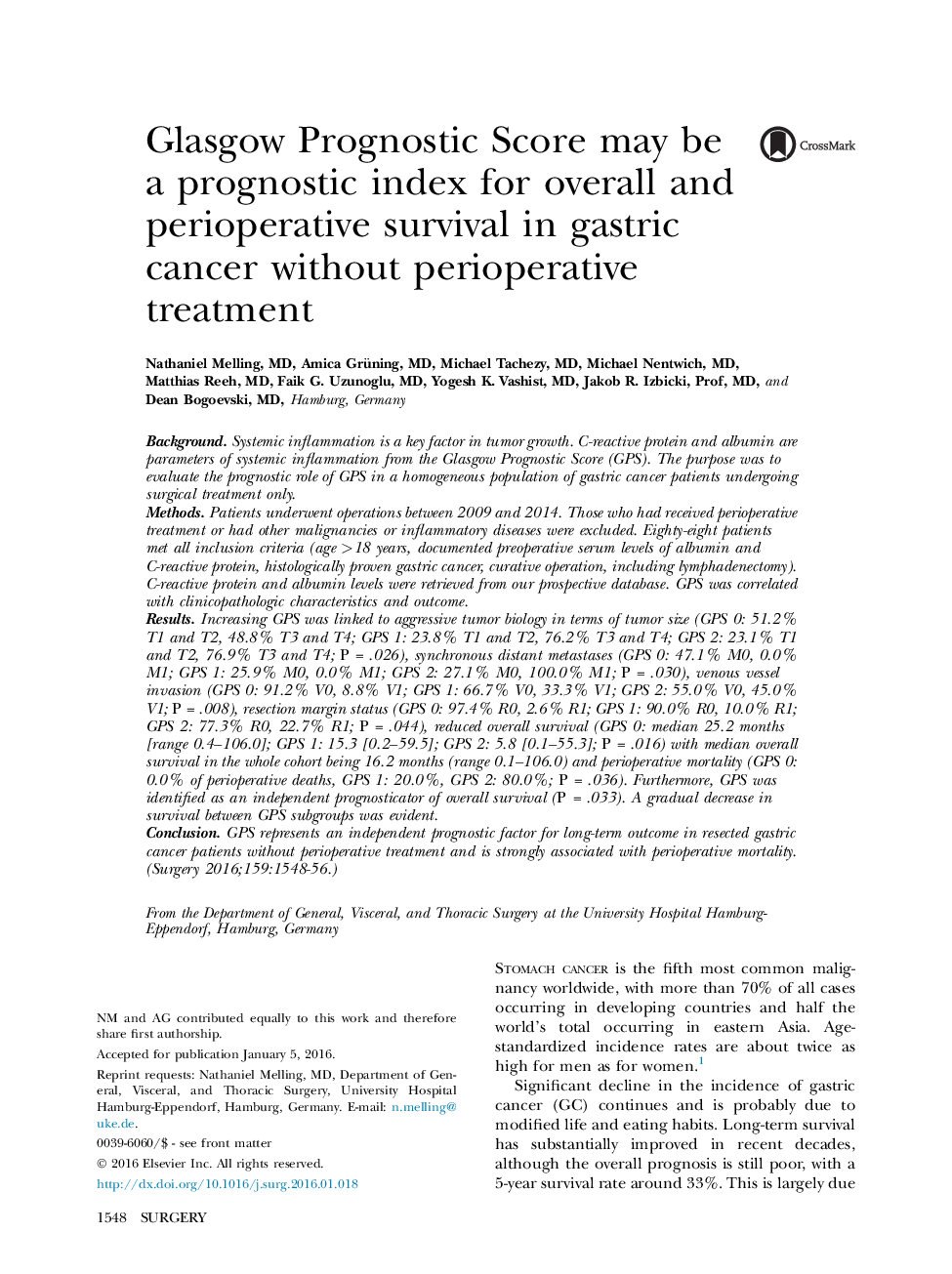| Article ID | Journal | Published Year | Pages | File Type |
|---|---|---|---|---|
| 4306569 | Surgery | 2016 | 9 Pages |
BackgroundSystemic inflammation is a key factor in tumor growth. C-reactive protein and albumin are parameters of systemic inflammation from the Glasgow Prognostic Score (GPS). The purpose was to evaluate the prognostic role of GPS in a homogeneous population of gastric cancer patients undergoing surgical treatment only.MethodsPatients underwent operations between 2009 and 2014. Those who had received perioperative treatment or had other malignancies or inflammatory diseases were excluded. Eighty-eight patients met all inclusion criteria (age >18 years, documented preoperative serum levels of albumin and C-reactive protein, histologically proven gastric cancer, curative operation, including lymphadenectomy). C-reactive protein and albumin levels were retrieved from our prospective database. GPS was correlated with clinicopathologic characteristics and outcome.ResultsIncreasing GPS was linked to aggressive tumor biology in terms of tumor size (GPS 0: 51.2% T1 and T2, 48.8% T3 and T4; GPS 1: 23.8% T1 and T2, 76.2% T3 and T4; GPS 2: 23.1% T1 and T2, 76.9% T3 and T4; P = .026), synchronous distant metastases (GPS 0: 47.1% M0, 0.0% M1; GPS 1: 25.9% M0, 0.0% M1; GPS 2: 27.1% M0, 100.0% M1; P = .030), venous vessel invasion (GPS 0: 91.2% V0, 8.8% V1; GPS 1: 66.7% V0, 33.3% V1; GPS 2: 55.0% V0, 45.0% V1; P = .008), resection margin status (GPS 0: 97.4% R0, 2.6% R1; GPS 1: 90.0% R0, 10.0% R1; GPS 2: 77.3% R0, 22.7% R1; P = .044), reduced overall survival (GPS 0: median 25.2 months [range 0.4–106.0]; GPS 1: 15.3 [0.2–59.5]; GPS 2: 5.8 [0.1–55.3]; P = .016) with median overall survival in the whole cohort being 16.2 months (range 0.1–106.0) and perioperative mortality (GPS 0: 0.0% of perioperative deaths, GPS 1: 20.0%, GPS 2: 80.0%; P = .036). Furthermore, GPS was identified as an independent prognosticator of overall survival (P = .033). A gradual decrease in survival between GPS subgroups was evident.ConclusionGPS represents an independent prognostic factor for long-term outcome in resected gastric cancer patients without perioperative treatment and is strongly associated with perioperative mortality.
